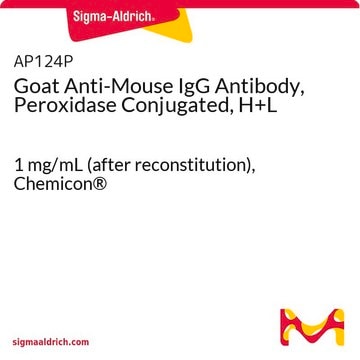MAK178
Enolase Activity Assay Kit
Sufficient for 100 Colorimetric or Fluorometric tests
Synonym(s):
Enolase Detection Kit
About This Item
Recommended Products
detection method
colorimetric
fluorometric
relevant disease(s)
immunological diseases; cardiovascular diseases
storage temp.
−20°C
Gene Information
human ... EBI4(387712) , ENO1(2023) , ENO2(2026)
mouse ... EBI4(226265) , ENO1(13806) , ENO2(13807)
rat ... EBI4(292138) , ENO1(24333) , ENO2(24334)
Related Categories
General description
Application
Suitability
Principle
Kit Components Only
- Enolase Assay Buffer
- Peroxidase Substrate, in DMSO
- Enolase Substrate Mix
- Enolase Converter
- Enolase Developer
- Enolase Positive Control
- Hydrogen Peroxide Standard, 0.88 M
Hazard Statements
Precautionary Statements
Hazard Classifications
Aquatic Chronic 3
Storage Class Code
10 - Combustible liquids
WGK
WGK 3
Regulatory Listings
Regulatory Listings are mainly provided for chemical products. Only limited information can be provided here for non-chemical products. No entry means none of the components are listed. It is the user’s obligation to ensure the safe and legal use of the product.
EU REACH Annex XIV (Authorisation List)
Certificates of Analysis (COA)
Search for Certificates of Analysis (COA) by entering the products Lot/Batch Number. Lot and Batch Numbers can be found on a product’s label following the words ‘Lot’ or ‘Batch’.
Already Own This Product?
Find documentation for the products that you have recently purchased in the Document Library.
Customers Also Viewed
Our team of scientists has experience in all areas of research including Life Science, Material Science, Chemical Synthesis, Chromatography, Analytical and many others.
Contact Technical Service










